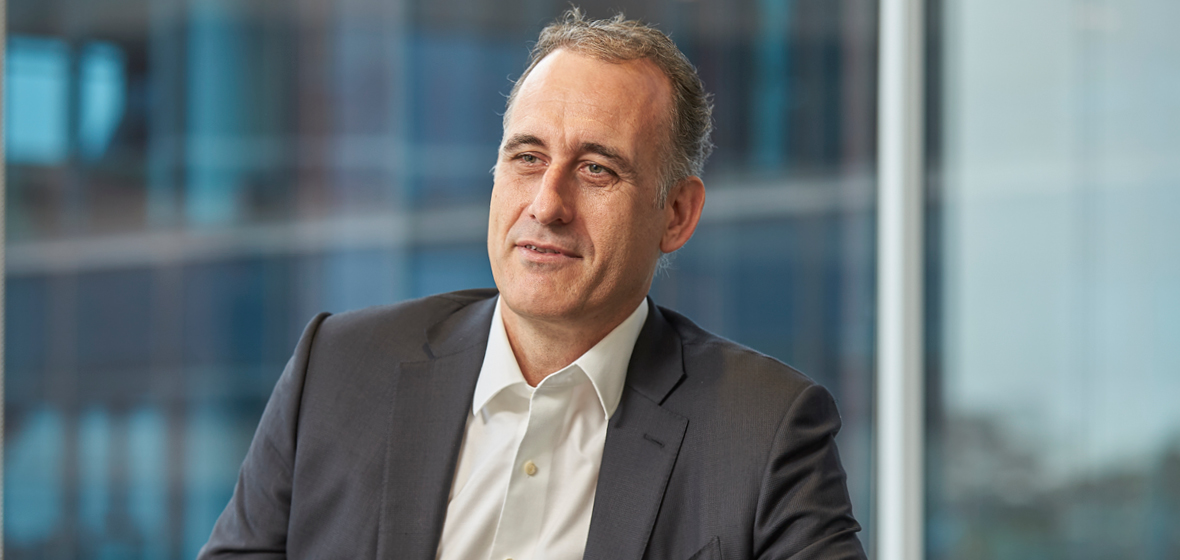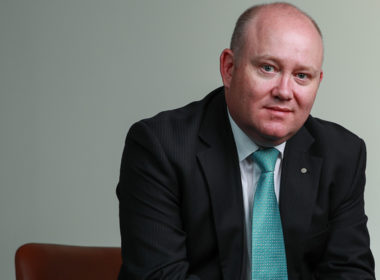“We needed to double down on our investment in our business stakeholders. So, things like providing paid pandemic leave to all of our team members, including our casual team, which is not something employers are contractually obliged to do … We also agreed to continue to pay all Victorian team members their usual earnings through the Melbourne lockdown, notwithstanding the fact that they may not have work to do.”
The last 12 months have been immensely challenging for all Australians. LSJ looks beyond the legal profession to unearth valuable leadership lessons from those shining through the mire.
ROB SCOTT: CEO and Managing Director of Wesfarmers, former Olympic silver medallist, Chair of Rowing Australia
It’s March 2020 in Australia. COVID-19 swamps the news cycle. Actor Tom Hanks lies sick in a Queensland hospital. Supermarket shelves are decimated by panicked shoppers. Toilet paper and gym equipment are gold.
On the west coast, where the sun is yet to rise, Rob Scott, CEO and Managing Director of retail and mining giant Wesfarmers, savours a rare moment of silence on Perth’s Swan River. The former Olympic rower-turned-businessman takes long, heaving breaths as he draws the oars of his single scull back, through darkness, over dusky waters. In just a few hours, he will be called in to a video meeting with the nation’s top CEOS, state and federal government ministers and heads of departments. It will be the first of countless meetings with Australia’s biggest public and private sector players, set up to war game the most unprecedented year he has faced in two and a half decades since he started at Wesfarmers in 1993.
“There were some areas of policy where we [Wesfarmers] had to be very active as a leadership team when trying to support government to make the right decisions in protecting lives and livelihoods,” Scott reflects in a video call with LSJ more than a year since that hectic time.
It must be his thousandth Zoom meeting since NSW Treasurer Dominic Perrottet convened the first COVID-19 call in March 2020 with leaders of the Australian business world.
“There was one call I remember where we had over 40 CEOs on the call,” he continues. “We had the treasurer, state treasurer, the head of the health department, all sharing information.
“What was clear was that it was difficult for some government departments to understand the interconnected nature of the supply chain. If they made a decision in one area to shut something down, all the flow-on implications.
“We employ over 100,000 Australians. Our first priority was to keep them safe. Our second priority was to continue to get critical products and services to our customers.”
It’s fairly clear 2020 was a dismal year for retail. Small businesses struggled to stay afloat while big companies rode out a stock market bloodbath as the ASX plunged 37 per cent at the start of the pandemic. Scott told the Australian Financial Review in August that he “honestly [didn’t] know” what the economy would look like by 2021.
Fortunately for Wesfarmers, what consumers thought of as critical products and services included stock from a handful of its businesses like Officeworks and Bunnings.
 Rob Scott
Rob Scott
Efforts to set up work-from-home offices and undertake renovations or home improvements during the pandemic soared. Even Scott joined the throngs of purchasers – acquiring a hoard of new office equipment to set up work and school spaces for himself, his wife, former gold medal-winning Olympic water polo player Liz Weekes, and their two teenage children. He even took to the garden and cultivated a small vegetable patch when he found himself having to self-isolate for two weeks at home.
Scott’s anecdotal experience was part of a nationwide trend summarised in his companies’ impressive financial reports. Bunnings reported a profit increase of 14 per cent for the 2019-2020 financial year, while Officeworks delivered $190 million in earnings. In the half-year ending on 31 December 2020, Wesfarmers reported its net profit after tax had increased by 25 per cent.
“On one hand, some of our success is because our businesses have benefited from the trends through COVID, and that’s been fortunate,” Scott says.
“On the other hand, we realised through COVID that we needed to double down on our investment in our business stakeholders. So, things like providing paid pandemic leave to all of our team members, including our casual team, which is not something employers are contractually obliged to do … We also agreed to continue to pay all Victorian team members their usual earnings through the Melbourne lockdown, notwithstanding the fact that they may not have work to do.”
The pandemic may have been the biggest crisis Scott has faced since he joined Wesfarmers – but it’s not the only challenge he has navigated. He started his career with the company a year after debuting in the Australian rowing eight team that reached the final at the 1992 Olympics in Barcelona. In those days, flexibility and remote work were far-off concepts. But Scott and his managers worked out a schedule that could fit around his demanding training regime (three training sessions a day, up before dawn) while he prepared for the 1996 Games.
His efforts to balance sport and work were rewarded: he rowed with the Australian team to a silver medal at Atlanta. The experience also instilled a longstanding appreciation of flexibility in Scott, which he has put to work since he took the helm as Managing Director in 2017. Scott asserts a light touch not dissimilar to the instructions on a Bunnings flat pack: some tools and minimal guidance that give capable people what they need to succeed on their own.
“The Wesfarmers business model is based on this concept of divisional autonomy where we try and empower our teams and give our teams the freedom to make the decisions most relevant for their business, particularly operational and personnel decisions,” he says.
“Providing a bit more flexibility and giving people a bit more autonomy in decision making, rather than every time people need to deal with an issue having to refer to the corporate manual.”
It’s a model that seems to have worked through 2020, as store managers became the “front line” battling increased demand and supply chain issues. He credits retail businesses under the Wesfarmers umbrella with doing a “phenomenal job” meeting additional demand and coming up with innovative online shopping solutions such as curbside click and collect.
He makes a rowing analogy as he reflects on the role he has played in the past year’s success.
“In 1992, at the Olympics in Barcelona, I had the opportunity to stroke the eight [to sit at the front of the boat and lead the rest of the crew in timing their oar strokes],” he recalls.
“For the first few days, I felt that I had the problems of the world on my shoulders, and there was so much responsibility to set the rhythm and the pace. I kept thinking that it was all about me. But I soon learned that as the stroke of the crew, it’s less about you and more about everyone else. You needed to have a high degree of empathy to set up a rhythm that worked for everyone, not just for you. When times got tough, it wasn’t simply about rowing harder, it was about rowing better.
“Those lessons I’ve tried to take into leadership. That, as the leader, it’s about creating an environment that gets the best out of everyone around you.”




